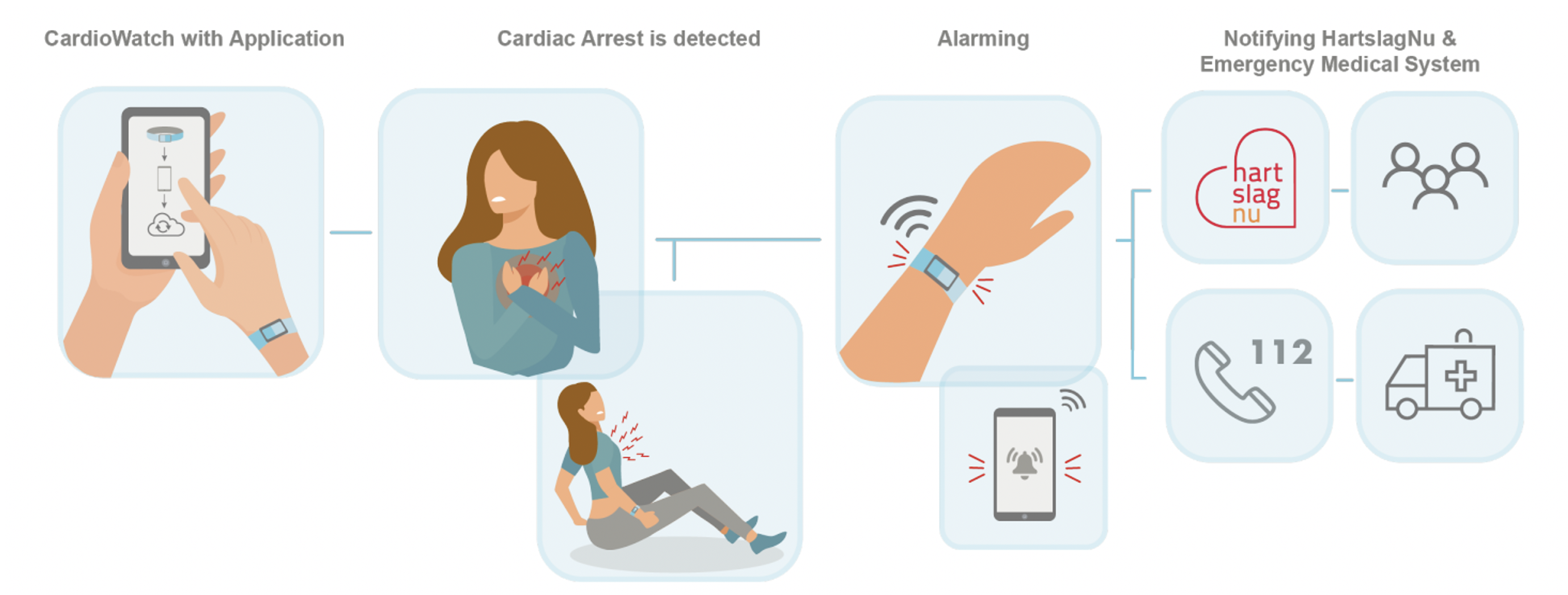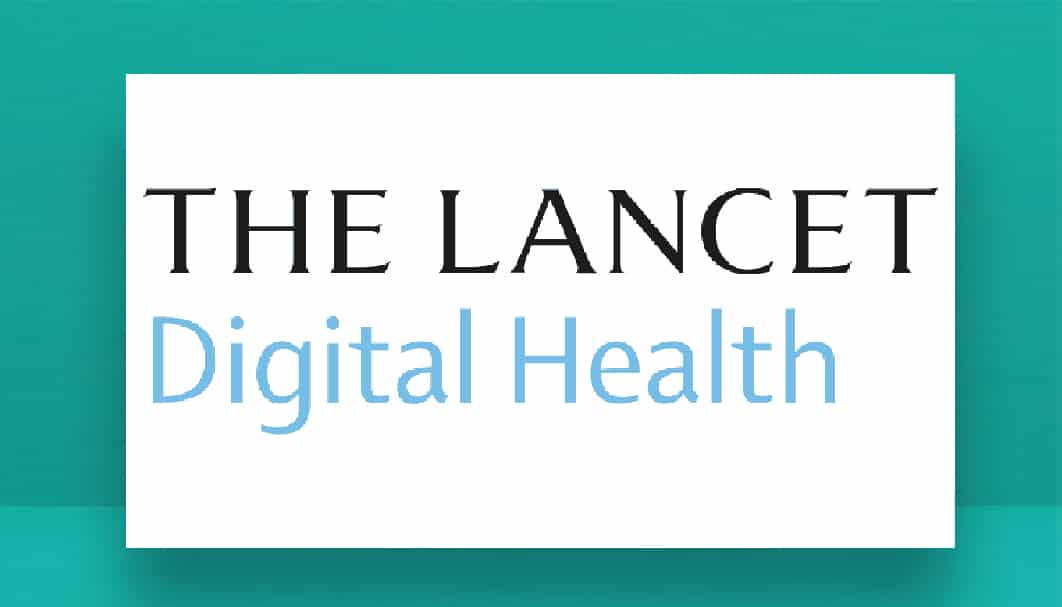Cardiac Arrest
Early detection of circulatory arrest
Unwitnessed Cardiac Arrest
A multicenter study on patterns of photoplethysmography in relation to cardiac collapse: towards automated detection of cardiac arrest.
Out-of-hospital cardiac arrest (OHCAs) are a major cause of mortality in the Western world. Survival depends on early recognition of cardiac arrest and initiation of cardiopulmonary resuscitation (CPR). With help of layperson volunteers who swiftly initiate CPR prior to ambulance arrival, survival chances have improved markedly. Automated detection of cardiac arrest using Corsano CardioWatch may further decrease treatment delays and is a next promising step in improving resuscitation care.
The Overall objective is to develop a user-friendly medically certified wearable that automatically detects circulatory arrest using multiple sensors including photoplethysmography (PPG) and that automatically activates the emergency medical system, including layperson volunteers of the HartslagNu network. Automatic detection of circulatory arrest by the Corsano CardioWatch 287-3 (C287-2 with LTE) will shorten the delay to initiation of resuscitation. Coronary artery disease (CAD) is the main cause of a Cardiac Arrest. Patients with CAD and patients who survived a prior Cardiac Arrest will wear CardioWatch 287-3 continuously.
In The Netherlands, there are 17’000 Cardiac Arrests per year and +50’000 patients at risk. It is estimated that there are +31 million patients at risk annually in EU and US. Recent news coverage Cardiac Arrest Clinical Trial on RTL News.

Corsano Health is developing the PPG-based algorithm for detection of circulatory arrest and will incorporate it into CardioWatch 287. The user interface will be connected to the emergency medical system and HartslagNu to be able to automatically activate these systems in case of detection of circulatory arrest. The techniques needed for this are in part already available, but must be converted for this application. A cloud-to-cloud API to connect to multiple clinical trial partners and various algorithms are already being successfully applied to the data generated by the CardioWatch 287 Bracelet.
Publication Cardiac Arrest
Collaborating researchers from Radboud University Medical Center, Erasmus MC, Reinier de Graaf Hospital, and Corsano Health have succeeded in reliably measuring whether a patient's circulation stops, as in the case of cardiac arrest. This was demonstrated in 291 patients wearing Corsano CardioWatch 287-2 while undergoing surgery, during which circulation is routinely interrupted. These results were published in the scientific journal The Lancet Digital Health. The research was initiated and funded by the Heart Foundation.

The findings from this study represent an important first step in the "Cardiac Arrest without Witnesses" project initiated by the Heart Foundation in 2020. The study included 291 patients who needed to undergo surgery that typically requires a temporary stoppage of circulation. During the placement of an ICD, cardiologists need to test whether the ICD intervenes during a heart rhythm disorder that causes cardiac arrest. The participating patients had agreed in advance to wear the Corsano CardioWatch Bracelet during surgery. The bracelet successfully detected cardiac arrest in almost all patients.

